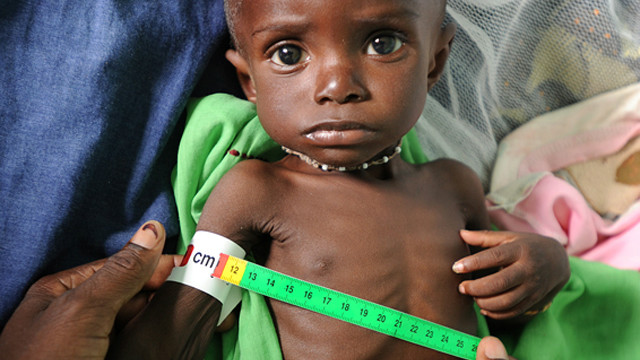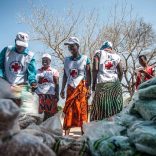Mozambique: Red Cross resumes food assistance for drought-affected families in Tambara and Machaze, ...
Mozambique plans to reduce chronic malnutrition among children – Behavioural change campaign

borgenproject.org (File photo)
The Ministry of Health hopes to reduce the prevalence of chronic malnutrition among Mozambican children to 20 per cent by 2020.
Data from the 2011 Demographic and Health Survey indicated that 43 per cent of children under five years of age are suffering from chronic malnutrition. This is believed to be strongly correlated with the nutritional status of their mothers.
On Monday the Health Ministry launched the Communication Strategy for Social and Behavioural Change to Prevent Malnutrition. This is in line with the existing Multi-Sector Action Plan to Reduce Chronic Malnutrition in Mozambique (PAMRDC), and takes as its target groups women of reproductive age, including pregnant and lactating women, and children up to two years old.
The priorities identified include the promotion of breastfeeding, a healthy diet for pregnant women, the use of iodated salt, and vitamin A supplements.
Health Minister Nazira Abdula, who chaired the launch ceremony, said that investment in nutrition provides social and economic benefits to the nation, such as lifting the intellectual and productive capacity of citizens.
The preventive measures envisaged, she said, “will reduce the resources the health sector spends on the later treatment of malnutrition, so that they can be used for other purposes”. Improved nutrition would also boost school attendance, and the academic performance of schoolchildren.
Fighting against malnutrition, Abdula added, will increase resistance to disease, and thus reduce the number of working days lost because workers are ill.
The new strategy, the Minister said, offers the necessary bases for planning communication through the key messages that will be transmitted in order to generate the social and behavioural changes needed to improve nutrition.
Levels of chronic malnutrition vary across the country and are at their worst in the three northern provinces of Nampula, Cabo Delgado and Niassa and the central provinces of Zambezia and Tete, and so special attention will be paid to these provinces.
The Health Ministry will form technical groups that will go into the districts to deliver messages on nutrition to health promoters, and to community, religious and political leaders.













Leave a Reply
Be the First to Comment!
You must be logged in to post a comment.
You must be logged in to post a comment.